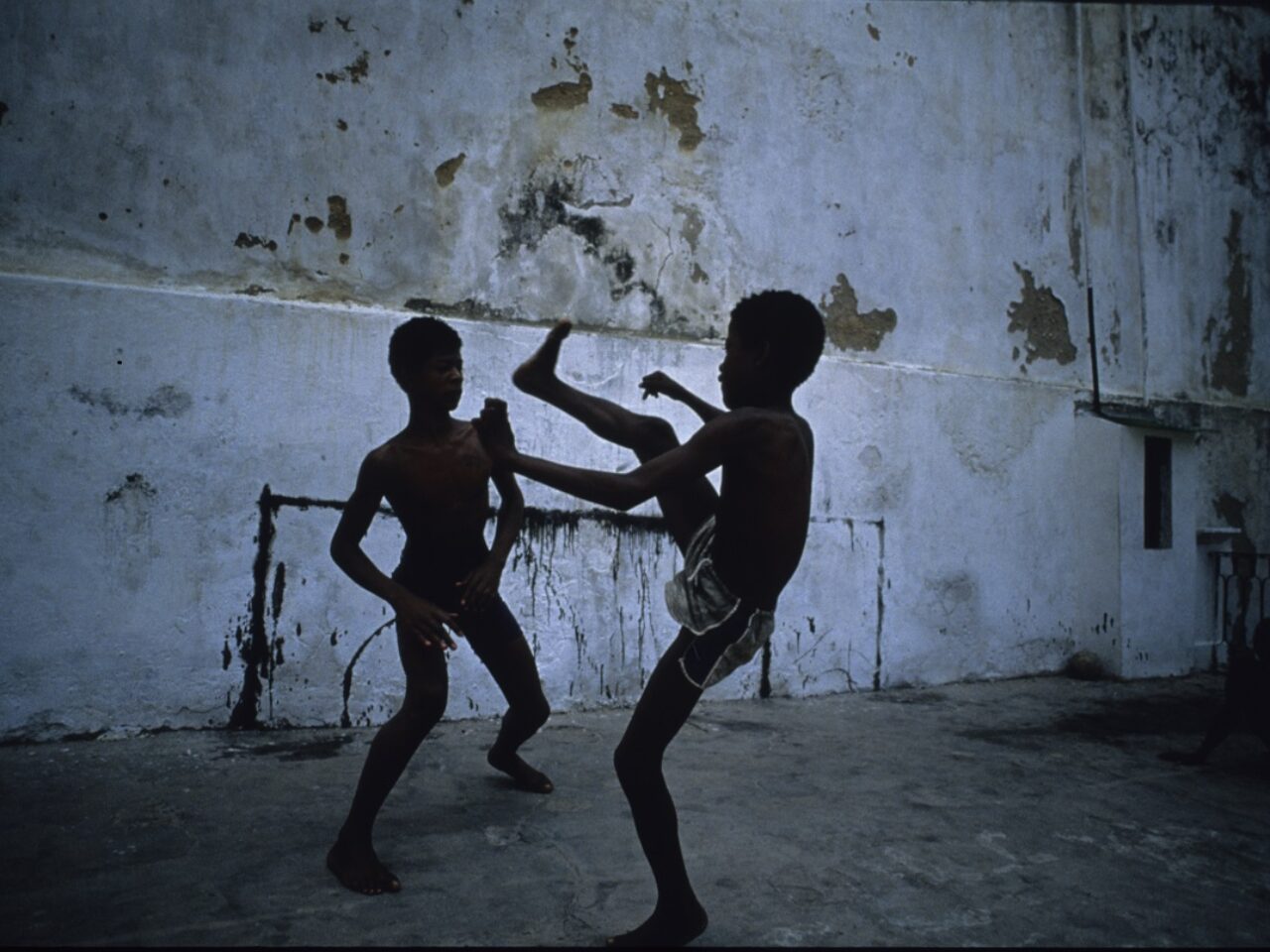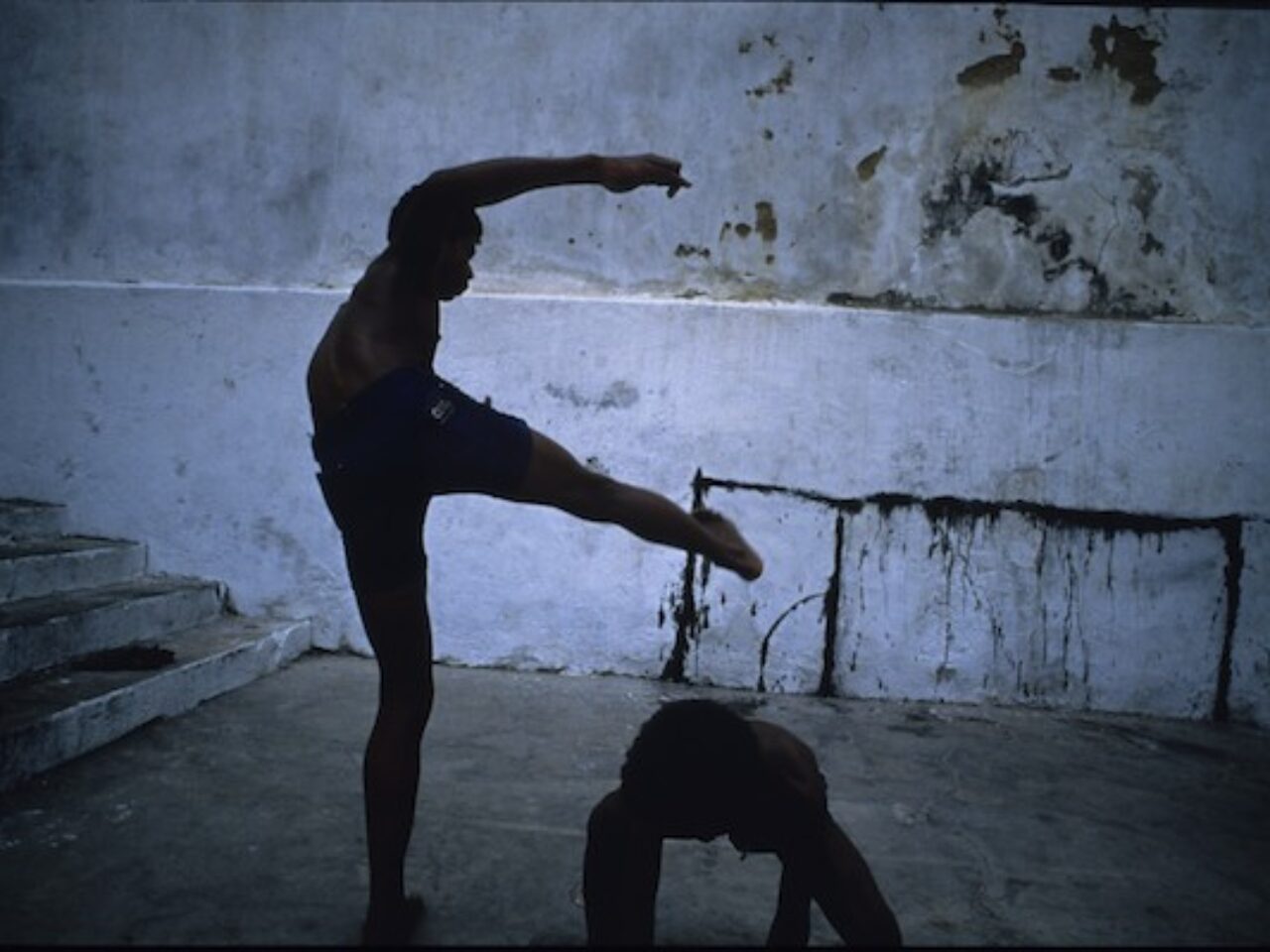Rio Branco captures the intensity of life and death through the materiality of his photographs.
1999 Biennial Year Find out more
Miguel Rio Branco is a photographer who documents the vivid colours and textures of contemporary life in Brazil, in contexts as diverse as abattoirs, brothels and a gymnasium. Rio Branco has on occasion made a point of equating or at least comparing these places. All are sites where the experience of life and death is heightened. Animals take their final breaths on the abattoir floor, while next door in the brothel the prostitutes’ clients pay for their own ‘little deaths’. These are scenes that mesh well with the iconic images of Carnivale and religious portrayals of ecstatic martyrdom.
Rio Branco captures the intensity of life and death through the materiality of his photographs. By taking long exposures he increases the depth of field and saturation of colour. Sometimes this means that the moving figure in the composition is blurred, or even transparent. For TRACE he exhibited two bodies of work in juxtaposition.
Blue Tango (1984) comprised a grid of 20 images. This was a series of photos taken of two boys kickboxing, their skinny bodies splayed out in dramatic and angular gestures created a veritable script of hieroglyphics or the notation for a vivacious dance.
Facing these spontaneous images of the street were a group of four large scale photos taken in a gymnasium entitled
Smoking Mirrors (1992). In these powerful but unstable images, figures dissolved as a result of the long exposures.
Blue Tango, 1984
Cibachrome Photographs, polyptych of 20 images
Courtesy of Galeria Camargo Vilaça, São Paulo
Exhibited at Tate Liverpool
Smoking Mirrors, 1992
Cibachrome photograph
Courtesy of Galeria Camargo Vilaça, São Paulo
Exhibited at Tate Liverpool


